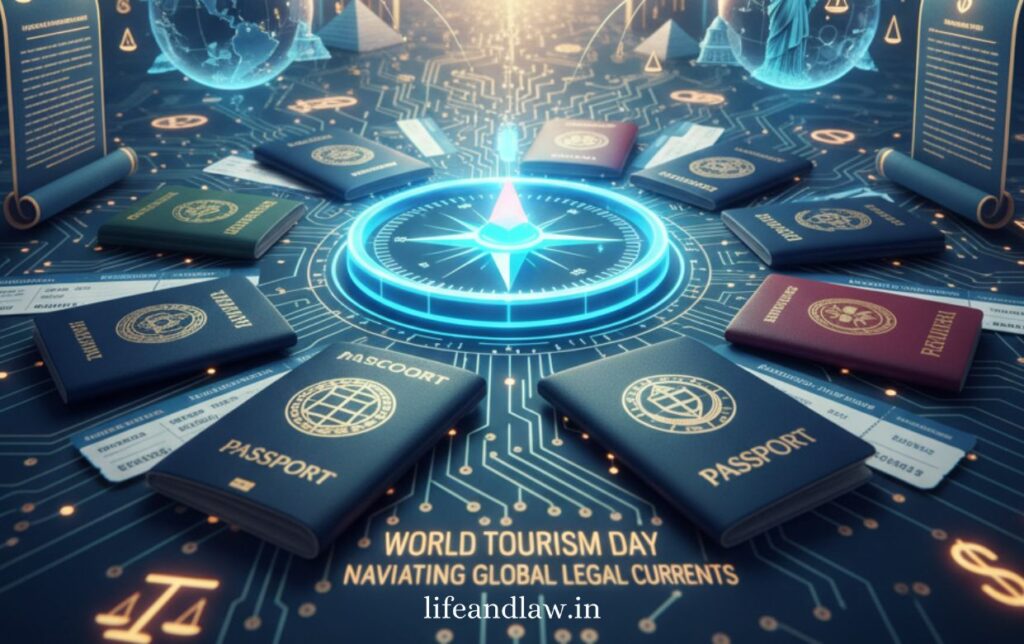Trending

World Tourism Day commemorates the joy of travel, its cultural relevance, and its contribution to worldwide economies. While it’s a time to savor the beauty of discovering new places, it’s also important to be aware of the dangers that can accompany it—particularly travel scams. These deceitful methods can rapidly transform a fun trip into a pricey mistake.
The aim of this article is to promote awareness about typical travel scams, provide practical recommendations for avoiding being a victim, and assist travellers in making educated decisions. Let’s make sure our travels are memorable for the right reasons: safe, enriching, and free of scams.
Travel scams are growing more complex. Here are some common varieties to look out for:
Fake Booking Websites and Deals: Lookalike websites advertise unrealistically low-cost flights or accommodations, but deliver phoney confirmations or disappear after payment.
Hidden Fees & Charges: Seemingly good deals disclose significant hidden expenses after booking or during the trip.
Visa and Documentation Scams: Fraudsters act as agents and charge exorbitant fees for bogus or undeliverable documents.
Timeshare and Resort Scams: High-pressure sales pitches for luxury vacations or investments that are ultimately misleading or worthless.
Phishing and Identity Theft: Fake emails or messages deceive travellers into disclosing personal or financial information.
Tourist Traps: Overpriced or low-quality experiences capitalise on tourists’ lack of local understanding.
Consumer protection regulations in India, notably in Maharashtra, provide an important safety net for travellers. The Consumer Protection Act of 2019 is crucial. It defines “consumer” broadly and includes services offered by travel agents, tour operators, and airlines. The Act outlaws “unfair trade practices,” which include deceptive advertising, fraudulent promises, and the sale of low-quality goods or services.
Furthermore, the Indian Contract Act of 1872 oversees parties’ agreements. If a travel agent makes false misrepresentations or fails to supply services as agreed, the contract may be voided, and the consumer may be entitled to seek recourse. While specific legislation may govern the licensing and conduct of travel agents, the fundamental idea is that consumers have the right to services of adequate quality and free of fraud.
Vigilance is essential. Be mindful of the following common warning signs:
“Too Good to Be True” Prices: If a bargain appears to be much less than market rates, it most often is.
Pressure tactics: Scammers frequently instill a sense of urgency, pressuring you to book immediately before you can think clearly.
Unusual Payment Methods: Requests for payment by wire transfers, gift cards, cryptocurrencies, or direct bank transactions to individuals (rather than established company accounts) are huge red flags.
Lack of verifiable information: Unprofessional websites, missing contact information, ambiguous terms and conditions, or the inability to offer a physical address should raise concerns.
Poor communication: Vague responses, evasiveness, or poor contact from the agent may suggest a lack of credibility.
Unsolicited offers: Be sceptical of vacation discounts sent unexpectedly by email or social media, especially if they need fast action or personal information.
Empowering yourself with knowledge and using safe habits can drastically lower your risk:
If you feel you’ve been scammed, respond quickly:
World Tourism Day celebrates exploration and cultural interaction, but it also emphasises the importance of care in the face of growing travel scams. Staying educated, recognising warning signs, and understanding your legal rights are critical to making your excursions both safe and enjoyable.
This article by Adv. Abdul Mulla provides practical and legal tips to assist travellers to prevent fraud. For additional information please visit www.asmlegalservices and www.lifeandlaw.in.
Adv. Abdul Mulla (Mob. No. 937 007 2022) is a seasoned legal professional with over 18 years of experience in advocacy, specializing in diverse areas of law, including Real Estate and Property Law, Matrimonial and Divorce Matters, Litigation and Dispute Resolution, and Will and Succession Planning. read more….
Copyright BlazeThemes. 2025